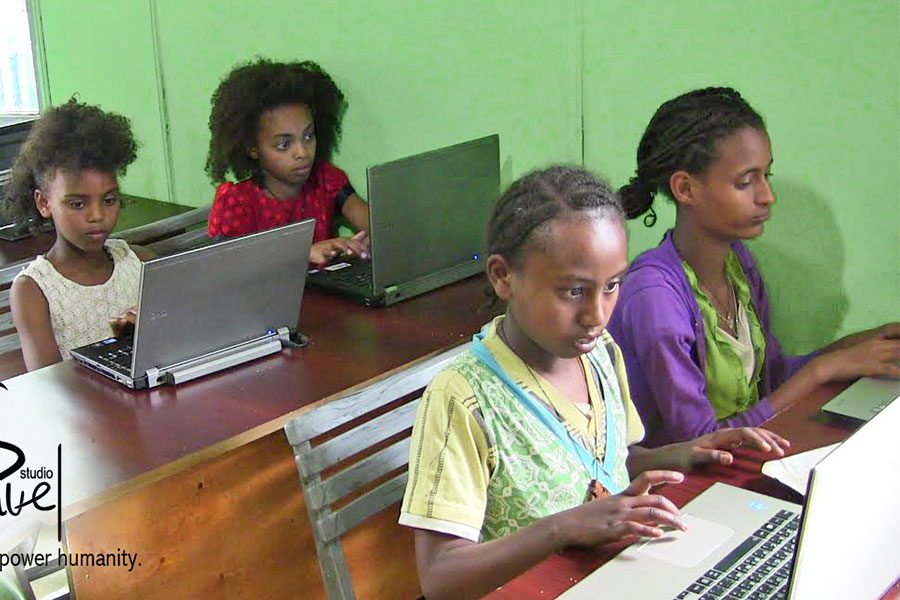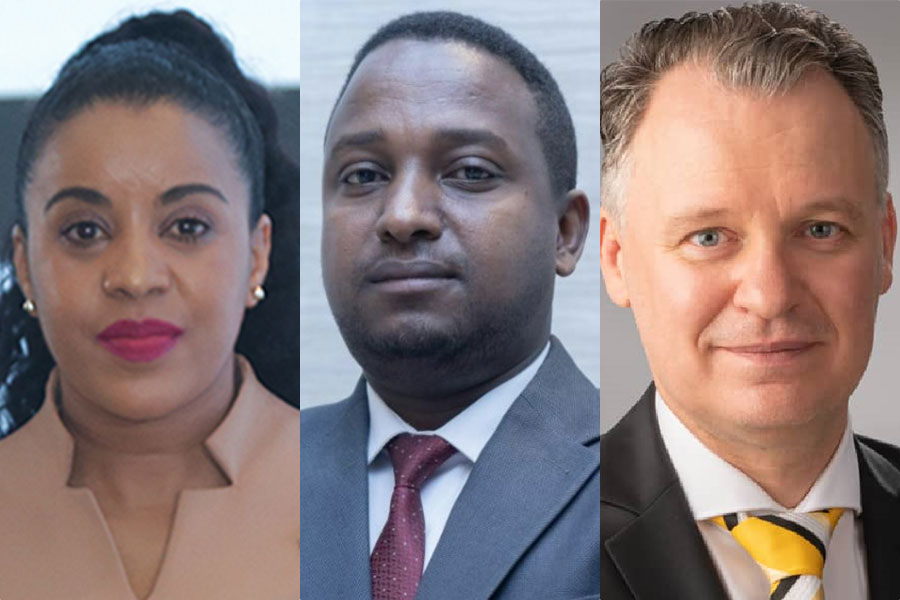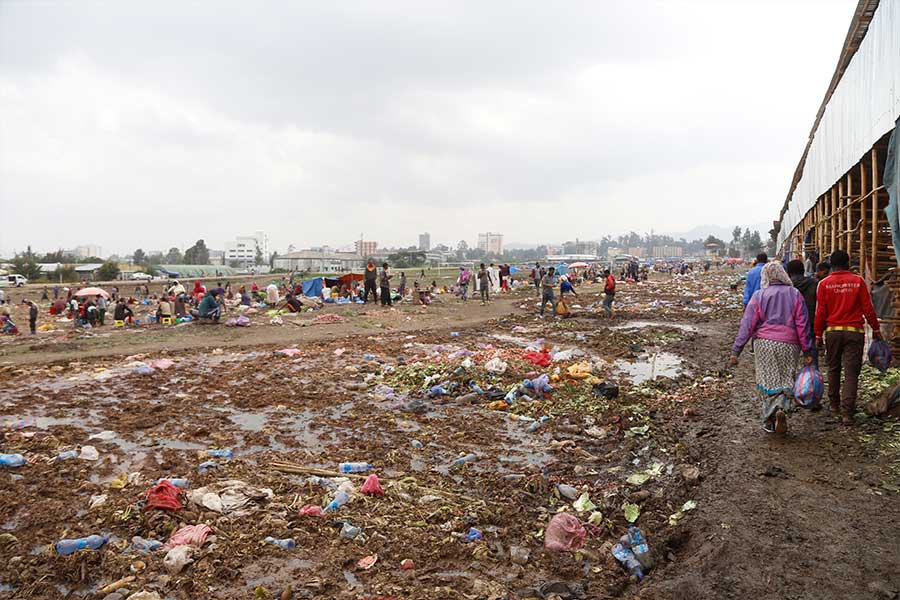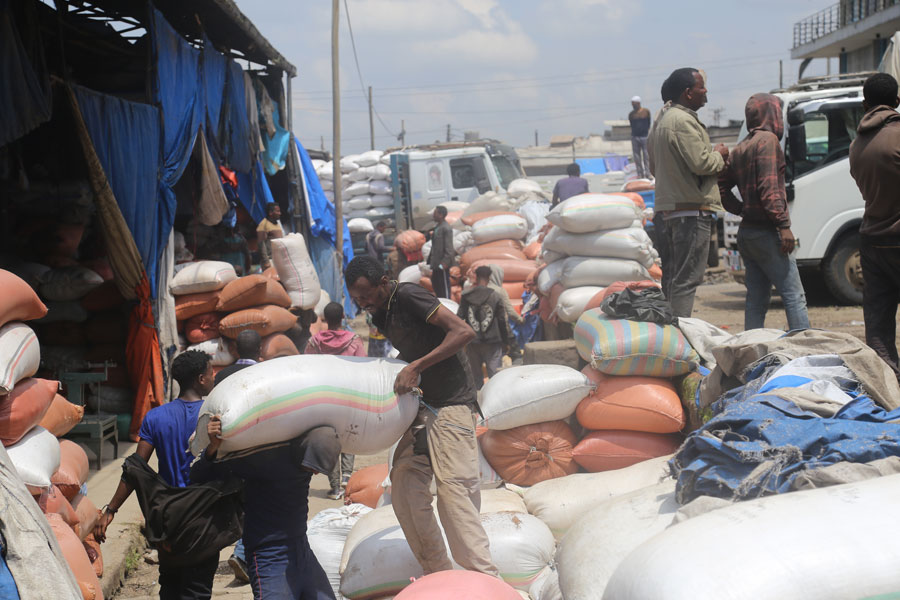
View From Arada | Jan 03,2021
Jan 31 , 2021
By Eden Sahle
Over the weekend, I took part in a forum and met brave parents who faced the absolute nightmare on the exposure their children, under the age of 16, could have. Although they have always been very much involved in their children's academic activities, as parents, it never occurred to them that their children need shaping and direction in other areas of life.
Induced by their peers at school, it was revealed to the parents that their children have been sexually active. The children stated that they were confused and suicidal, without anyone knowing about their struggle. They had been viewing inappropriate content distributed by their friends on their smart devices.
The issue has been exasperated by the closure of schools following lockdowns in response to the Novel Coronavirus (COVID-19) pandemic. Barely supervised use of the internet exposed them to inappropriate content that aggravated the problem. This was in contrast to the parent’s view that their children were not as affected by the isolation due to not being able to meet their friends.
There was a positive outcome to all of this. The parents did not go about condemning their children. They instead offered emotional help and an acknowledgement of the struggle of their children.
These parents are not alone. There are many parents – one would say that there are always children – that discover that their children lead secret lives, but only after the damage has been done. Sometimes, this damage can be irreversible. It could be child pregnancy, or worse, HIV or AIDS.
Addressing this issue would require a concerted effort by parents, schools and civil society organisations.
Many parents allow their children to join social media and surf the internet unsupervised without realising the great danger. This problem is more severe for parents who did not get proper schooling themselves, and are clueless about how to monitor their children’s online activities. As a result, children are exposed to content that may be inappropriate to their age.
There are several tools parents can use to closely monitor what their children are doing on their device and block access to certain content through filters. But the best thing to do is educate them early on about what will benefit and what will harm them. Children may not tell anyone about a bad thing that happened to them. Building confidence in them, and making it clear that it is acceptable to seek support, is critical. Parents should make it clear that there is nothing that they cannot open to them about.
Generation Z, the demographic group between the age of six and 24 succeeding the Millennials, has access to many things without being aware of the enormous risks. Without supervision and guidance, a child can either unintentionally or purposely find explicit and extremely violent content, damaging their emotional, physical and academic development.
Just as parents are concerned about ensuring their child eats healthy, excels academically or make ‘well-behaved’ friends, they should also pay attention to their actions on the digital space. In the absence of parental support, schools and civic organisations should step in to fill the gap to create a healthy and productive society.
Though the internet was not as prevalent while I was growing up, my family had fallen for this error of judgment as well, concentrating much of their attention on my physical wellbeing and academic success. But I went to a good school, Lideta Catholic Cathedral School, with a very well-oriented ethics class. We started taking it when I was just 13 years old. My family sat me down to discuss the things I should stay away from when I was 18. They were surprised to find that our teachers over the years have broached some of the subjects already.
My school used to make us watch documentaries about substance abuse and awareness creation of sexual intercourse. This was one of the most important lessons from my schools that I am highly grateful for. They had open and honest communication with us, the students, something none of us were getting either from parents or civic organisations.
Unlike what many parents believe, children are savvy. The sooner we start being honest with children, the better they will protect themselves and save ourselves the heartache and regret.
PUBLISHED ON
Jan 31,2021 [ VOL
21 , NO
1084]

View From Arada | Jan 03,2021

Fortune News | Oct 14,2023

Radar | Jun 27,2020

Fortune News | Jun 12,2021

Radar | Dec 17,2022

Fortune News | Aug 19,2023

Viewpoints | Sep 23,2023

Radar | Jun 01,2019

Sunday with Eden | Apr 24,2021

Radar | Jun 03,2023

My Opinion | 131766 Views | Aug 14,2021

My Opinion | 128149 Views | Aug 21,2021

My Opinion | 126095 Views | Sep 10,2021

My Opinion | 123717 Views | Aug 07,2021

Dec 22 , 2024 . By TIZITA SHEWAFERAW
Charged with transforming colossal state-owned enterprises into modern and competitiv...

Aug 18 , 2024 . By AKSAH ITALO
Although predictable Yonas Zerihun's job in the ride-hailing service is not immune to...

Jul 28 , 2024 . By TIZITA SHEWAFERAW
Unhabitual, perhaps too many, Samuel Gebreyohannes, 38, used to occasionally enjoy a couple of beers at breakfast. However, he recently swit...

Jul 13 , 2024 . By AKSAH ITALO
Investors who rely on tractors, trucks, and field vehicles for commuting, transporting commodities, and f...

Jul 5 , 2025
Six years ago, Ethiopia was the darling of international liberal commentators. A year...

Jun 28 , 2025
Meseret Damtie, the assertive auditor general, has never been shy about naming names...

Jun 21 , 2025
A well-worn adage says, “Budget is not destiny, but it is direction.” Examining t...

Jun 14 , 2025
Yet again, the Horn of Africa is bracing for trouble. A region already frayed by wars...

Jul 6 , 2025 . By BEZAWIT HULUAGER
The federal legislature gave Prime Minister Abiy Ahmed (PhD) what he wanted: a 1.9 tr...

Jul 6 , 2025 . By YITBAREK GETACHEW
In a city rising skyward at breakneck speed, a reckoning has arrived. Authorities in...

Jul 6 , 2025 . By NAHOM AYELE
A landmark directive from the Ministry of Finance signals a paradigm shift in the cou...

Jul 6 , 2025 . By NAHOM AYELE
Awash Bank has announced plans to establish a dedicated investment banking subsidiary...